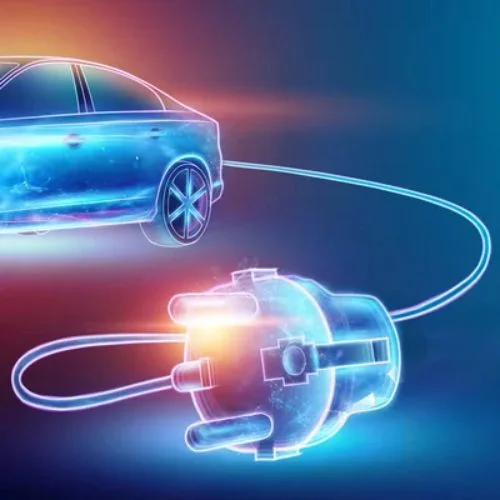Auto Dealers Intensify Fight Against Electric Vehicle Requirements

Table of Contents
Financial Investments and Infrastructure Barriers
The transition to EVs demands substantial upfront investment, presenting a major hurdle for dealerships, especially smaller independent ones. This includes significant costs associated with upgrading facilities to accommodate EVs.
- Facility Upgrades: Dealerships need to invest in specialized EV charging infrastructure, including fast chargers and potentially solar power integration to support these charging stations. This requires substantial capital expenditure and potentially construction modifications.
- Technician Training: EVs require specialized knowledge and tools for repair and maintenance. Dealerships must invest in training programs for their technicians to handle the complexities of EV technology, including battery replacement and high-voltage system maintenance. This represents both a financial and a time investment.
- Inventory Management: Managing EV inventory differs significantly from traditional gasoline-powered vehicles. Dealerships need new systems to track battery health, manage charging schedules, and account for longer lead times for EV parts and repairs. The increased complexity adds to operational costs.
These costs are a major concern for dealerships. The lack of sufficient government support and insufficient incentives, particularly for smaller dealerships, exacerbates the financial burden. Many dealerships argue that the current support packages do not adequately cover the substantial investment required to transition to an EV-centric business model. They are calling for more targeted financial assistance and tax credits to help offset these expenses.
Consumer Demand and Market Uncertainty
While EV adoption is undoubtedly growing, it's not yet widespread enough to offset the significant financial risks for dealerships. Several factors contribute to this market uncertainty.
- Consumer Hesitation: Many consumers remain hesitant about EVs due to range anxiety, the limited availability of public charging stations, and the generally higher initial purchase prices compared to gasoline-powered vehicles. This hesitancy translates to slower sales and potentially unsold inventory for dealerships.
- Raw Material Price Fluctuations: The fluctuating prices of raw materials, particularly lithium-ion batteries, create instability in the EV market, impacting both vehicle production and pricing. This unpredictability makes it difficult for dealerships to accurately forecast demand and manage their inventory effectively.
- Resale Value Concerns: Concerns regarding the long-term resale value of used EVs are also impacting dealer confidence. Uncertainty around battery degradation and the lifespan of crucial components affect the future value of these vehicles, potentially affecting used car sales and trade-in values.
These factors contribute to the dealerships' worry about overstocking EVs that may not sell quickly, leading to significant financial losses. This risk is magnified by the higher initial investment in EV infrastructure and inventory compared to traditional vehicles.
The Role of Existing Sales Models and Profit Margins
The transition to EVs presents a significant challenge to the established sales models and profit margins of many dealerships.
- Reduced Service Revenue: EVs require significantly less maintenance than gasoline-powered vehicles. This translates to a potential reduction in service revenue for dealerships, a crucial component of their overall profitability.
- Direct-to-Consumer Sales: Some EV manufacturers are employing direct-to-consumer sales models, bypassing traditional dealerships altogether. This threatens the established roles and revenue streams of dealerships, further impacting their financial viability.
Dealers are deeply concerned about the impact of reduced profit margins on their overall business viability. The shift to EVs necessitates a fundamental change in their business model, requiring significant adaptation and investment, without a guaranteed return on that investment.
Political Lobbying and Regulatory Challenges
Faced with these challenges, dealerships are actively lobbying against stricter EV mandates and regulations. Their arguments focus on several key concerns.
- Unrealistic Timelines: Dealerships argue that the current timelines for EV adoption are unrealistic and put undue pressure on the industry, particularly on smaller businesses that lack the resources to quickly adapt. They advocate for a more gradual transition that considers the practical limitations of the automotive sector.
- Job Security: Concerns are raised about the potential negative impacts on jobs within the automotive sector due to rapid technological shifts. They argue that a well-managed transition is essential to mitigate job losses and ensure a smooth changeover for workers.
Dealerships are advocating for more gradual transitions, greater consideration of economic realities, and more substantial support from the government to ensure a sustainable shift towards electric vehicles. They believe that a collaborative approach, involving dealerships, manufacturers, and policymakers, is crucial for success.
Conclusion
The fight against increasingly stringent electric vehicle requirements is a complex issue with significant implications for the automotive industry. Dealerships are facing substantial financial hurdles, market uncertainty, and challenges to their existing business models. While the transition to EVs is inevitable, addressing the concerns of auto dealers through targeted support, reasonable timelines, and transparent regulatory frameworks is crucial for a successful and equitable shift towards a sustainable future. Understanding the challenges faced by dealerships in adapting to electric vehicle requirements is vital for policymakers and manufacturers. Let's find a collaborative solution that ensures a smooth transition and avoids jeopardizing the industry as a whole.

Featured Posts
-
 Smart Bets Nba And Nhl Playoffs Round 2
May 16, 2025
Smart Bets Nba And Nhl Playoffs Round 2
May 16, 2025 -
 Goldman Sachs Trumps Stance On 40 50 Oil Price Revealed Through Social Media
May 16, 2025
Goldman Sachs Trumps Stance On 40 50 Oil Price Revealed Through Social Media
May 16, 2025 -
 Experience Ps 1 Games Anew Steam Deck Verified Games
May 16, 2025
Experience Ps 1 Games Anew Steam Deck Verified Games
May 16, 2025 -
 Padres Vs Cubs Predicting The Outcome And A Potential Cubs Victory
May 16, 2025
Padres Vs Cubs Predicting The Outcome And A Potential Cubs Victory
May 16, 2025 -
 One Apps Potential To Shake Up Metas Reign
May 16, 2025
One Apps Potential To Shake Up Metas Reign
May 16, 2025
